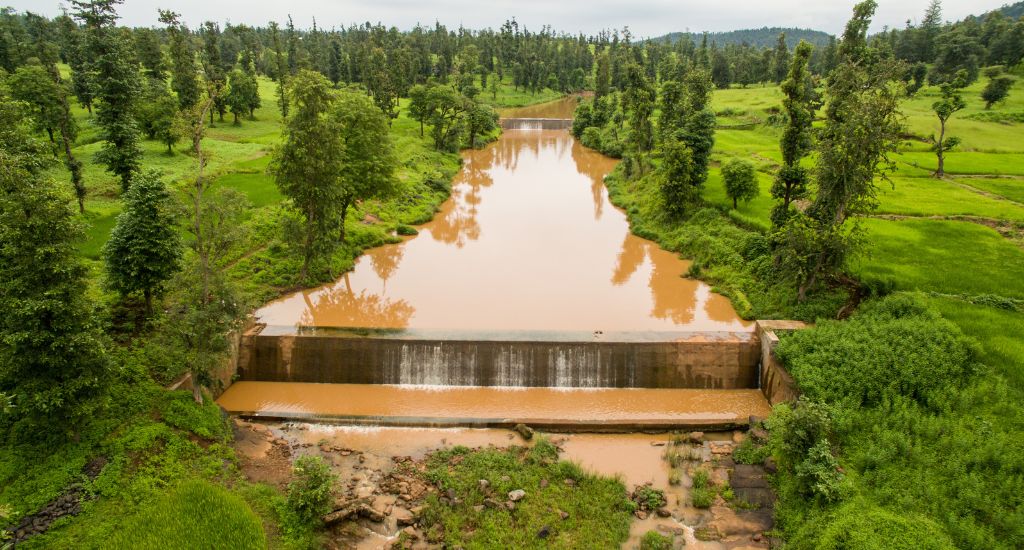
Joining forces to transform a Gujarat village
Mahalpada village in Gujarat undergoes a transformation when the community comes together to improve water availability, leading to enhanced incomes and social well-being.

Mahalpada village in Gujarat undergoes a transformation when the community comes together to improve water availability, leading to enhanced incomes and social well-being.
Dang district of Gujarat has remained at the bottom of development profiles for decades. This has been due to several reasons, including the hostile topography with steep hills, intense rainfall (2,000 mm) on denuded hill slopes, poorly motivated tribal communities and a general paucity of infrastructure.
Mahalpada is a village of 175 houses that lies about 12 km from Ahuva, the headquarters of Dang district. It’s a stark indication of the neglect and poor human development that the district faces. The situation here was depressing as late as in 2015.
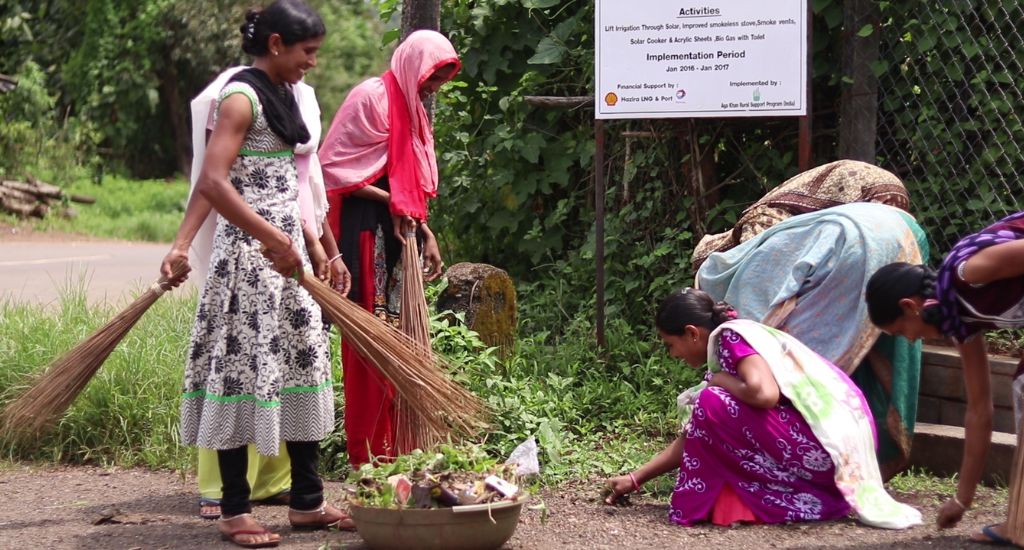
However, the Mahalpada village saw a huge transformation when the community began working together with support from Aga Khan Rural Support Programme – India (AKRSP-I).
“There was a time when children ran around, hungry and unclothed, people defecated in the open and the village was a mess,” recalled a woman resident of Mahalpada village. Women were shy and did not participate in the public affairs concerning the village.
Although a number of water harvesting structures were built on Nanu Kotar, the stream that flows through the village, they were in disrepair.
Also Read: Community revives Meghal river, ensures water security
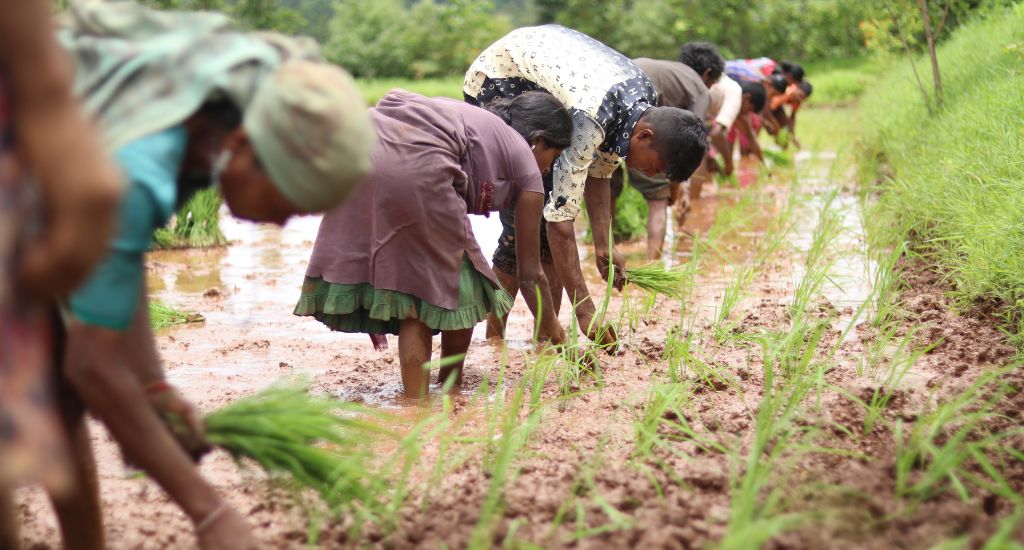
Only five households of Mahalpada village grew wheat or chickpea on retained moisture. All the others grew only millet and paddy in kharif season and migrated the rest of the year for work, often with families.
Among the first things AKRSP-I did was to create and strengthen the gram vikas mandal (village development council). This helped the people voice their concerns and take decisions on what Mahalpada village needed. When the villagers were assured that there would be change for the better, they came together and worked for the cause.
Mahalpada’s true transformation happened when the check dams and the sole earthen bund in the village were all repaired. This led to an improvement in the water table.
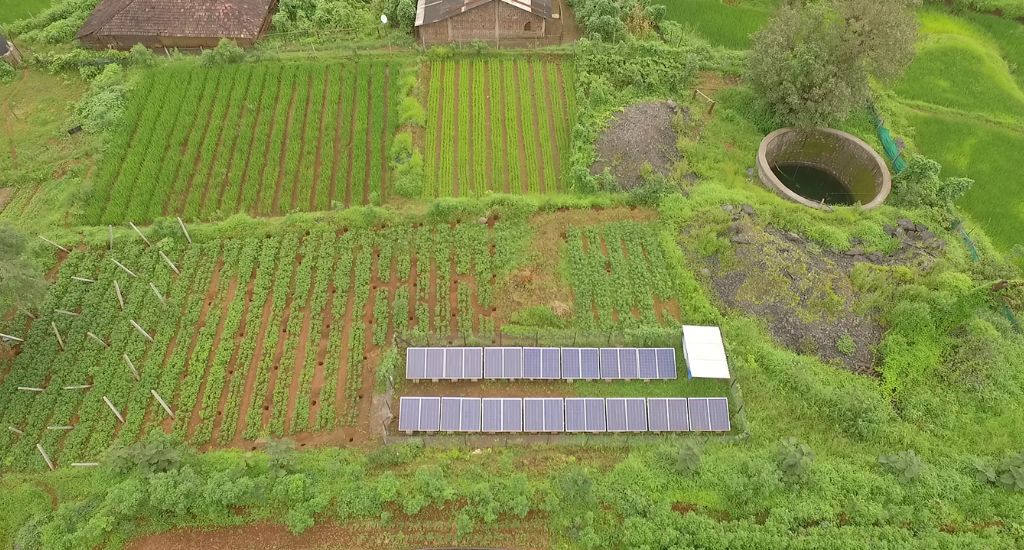
Since water harvesting structures ensured access to water, the farmers who were growing a single crop earlier, undertook second and third season farming, using a solar irrigation system. They also switched to methods such as the system of rice intensification (SRI) that uses less water and gives better yields. Cultivating bitter gourd, rearing goats and starting deep litter poultry created hitherto unheard of sources of income.
In 2016, only five houses had a toilet in the Mahalpada village. Using state funds and popular cooperation, 230 toilet units were constructed, covering all the households. Fifteen self-help groups were formed and women started saving money regularly, having learnt how to operate their bank accounts.
Also Read: Tribal women stitch a new future in Gujarat’s Dang
Children, including girls, now study in schools – often staying in hostels – as their parents have the money to educate them.
As the families started earning more, the need to migrate for bare survival reduced substantially and the sense of shame and indignity was removed. There is a glow of satisfaction on the faces of the tribal folk and their eyes show a new hope and an aspiration to build on their current achievements.
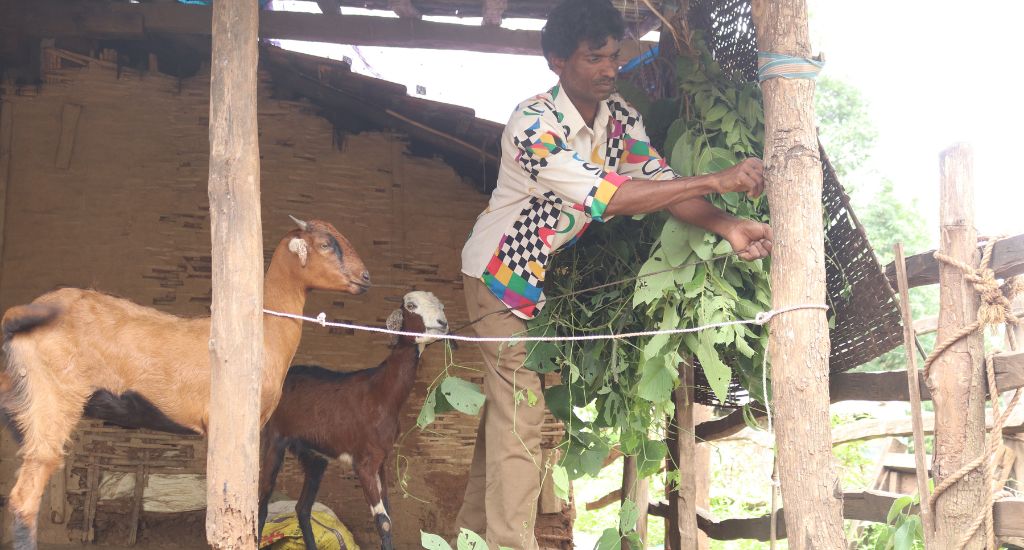
‘‘I can manage on my own today and I am confident of handling anything. My condition was really bad initially. AKRSP-I taught us so many things which not even our parents could teach.” These words of Sangeeta Deshmukh, a resident of the Mahalpada village, sum up the mood of the entire village.
Also Read: Indigenous community in Dang fights for land rights
The lead image shows one of the check dams the people of Mahalpada village repaired, which led to a transformation of the village. (Photo courtesy AKRSP-I)
Sugandhi Baliga is the co-founder of Happy2Age, a social enterprise. She has over three decades of experience in the corporate and development sectors.